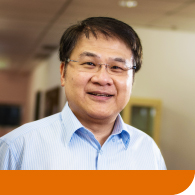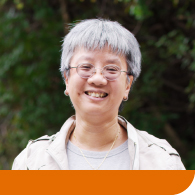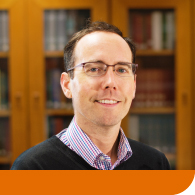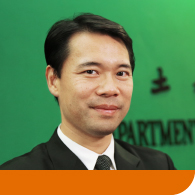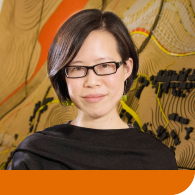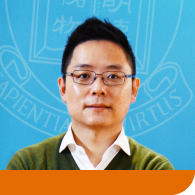Individual Award
Professor Cheung Wing-sum
Department of Mathematics
Mathematics to Professor Cheung is like a kaleidoscope: a place of beauty and colour, and of concepts that cannot be simply pinned down to formulas but rather are grasped intuitively. That imaginative approach to his subject, paired with a down-to-earth enthusiasm, has greatly inspired his students.
“To learn and master mathematics, sense or insight or feeling is more important than sophisticated techniques,” he said. “Detailed and rigorous arguments could easily hinder the understanding of the essential idea behind the scene, and blur the flow of thinking. So the core of my teaching is to nurture the sense or insight in mathematics.”
He uses layman terms and simple pictures to illustrate abstract concepts, with the aim of getting students to think.
“Professor Cheung’s lectures are always clear and inspiring. He explains abstract theorems in such an elegant and creative way,” Bo Jiang (BSc 2013) said. “He is humourous and with zero arrogance.”
He also connects with his students on a personal level. “Although he is very busy, his door is always open for students, even outside office hours,” added current MPhil student Peng Jun.
Dr Tammy Kwan Yim-lin
Faculty of Education
Dr Kwan believes the best teachers are also fearless learners who are constantly pushing the boundaries and willing to step outside their comfort zones to explore new ground. As her students attest, she is an inspiring example of this approach herself.
“I strongly believe a teacher of excellence and a genuine professional needs to be proactive in taking up leadership roles and possess the courage to try innovative practices in both teaching and curriculum design,” she said.
Dr Kwan demonstrates those goals by regularly seeking feedback from students on how to make her lessons more interesting and rewarding, said Michelle Kwong (PGDE 2013). “Dr Kwan never presents herself as a person of authority. Instead, she wants and needs her students to realise that she is learning with them at every step of the course.”
She also provides a great deal of support for her students, said Julian de Brackinghe (PGDE 2011), who has also done undergraduate and postgraduate degrees in the United Kingdom. “I do not believe I have ever received as much support from a teacher especially at a higher level of education.”
Dr Cole Roskam
Department of Architecture
To Dr Roskam, a building is not just a structure, it embodies many different facets of a society. He conveys this all-embracing philosophy to his students, who say they emerge with a stronger understanding of their discipline.
“Helping students understand and appreciate the significance of architecture not merely as physical form, but as a cultural, political, and social construct, deepens their connection to the city while also exposing them to the significance of intercultural understanding, collaboration, and global citizenship,” he said.
Ultimately, his aim is for students “to build a sense of intellectual autonomy”, and his students testify that he succeeds. Norman Ung (MArch 2012) said: “His courses completely changed my perspectives towards architectural discourse. He questioned the nature of architectural history itself and probed how histories of architecture have been fundamentally constructed.”
He also connected personally with students and helped them to progress, according to Lin Yinchun (PhD 2013).
“At the end of the semester, he sent each of us a letter of encouragement and suggestions, helping us to better understand our progress and weaknesses. This feedback greatly improved my reading, thinking, and writing.”
Dr Shih Kaimin
Department of Civil Engineering
For Dr Shih, teaching is a privilege and an honour that is all about passing the baton of knowledge on. “What is the purpose of our achievements today if we cannot pass down our newly acquired knowledge and experience to future generations?”
He specialises in environmental sustainability, a new area in the engineering curriculum, and he instills in students his belief that “innovation is key to solving today’s sustainability challenges.”
He is renowned for bringing humour and unusual ideas to his classroom, and finding exciting ways to turn abstract and difficult concepts into practical and simple forms. Current MSc student Eugenia Cheng Woon- ching recalls worrying that a course on waste management might not be much fun, but finding: “Dr Shih integrated interactive activities and multimedia in class learning – who else would give us assignments of dissembling a real toaster for carbon footprint analysis, and a study trip to landfill!”
His students agree that his teaching methods are unforgettable and highly effective. He is fond of telling them: “If we do not have a simple way to explain a concept, it means we do not understand it enough.”
Ms Dorothy Tang Shun-wai
Department of Architecture
While it is important to set students up for success in the classroom, Ms Tang believes that since university is the last safe place for her students to innovate and experiment before they enter into the practice of landscape architecture, unsuccessful attempts are equally rewarding.
“Perhaps students should not be evaluated by the success of their final projects, but rather the process in which they set up the problems and execute solutions,” she said. “Even if the ultimate experiment fails, students learn through identifying why the project did not work.”
She views experiential learning as a crucial element of her teaching process as “fieldwork exposes students to discrepancies and contradictions between data collected remotely and realities on the ground, necessitating skillful information gathering and decision-making. This prepares students to enter into the profession with discernment, conviction, and confidence to take design risks.”
Dr Yan Xiaojun
Department of Politics and Public Administration
Dr Yan regards university teaching in the 21ˢᵗ century as a “transformative and conversational process, which affords an opportunity to inspire and empower and to learn, both for ourselves and our students.”
Inside the classroom, he regularly uses news clips in his lectures to illuminate his concepts and demonstrate to students that politics are everywhere. But he is also a strong advocate of learning through conversation outside of the class, and regularly invites students for discussions in an informal atmosphere.
“He welcomed discussions with students, and did not confine the interactions to intellectual discussion; he also shares his insights on personal growth and character formation,” said former student Jeffrey Wong Yin-chun (BSocSc 2010).
Many of his students speak of Dr Yan as an inspiration who mentored them to further studies or careers in politics. “His class is special to me in that it is not the end of a learning process, but an entry inducing me to learn more,” said former student Triston Cui Xun (BSocSc 2010). “With Dr Yan’s support and encouragement, I chose to work in the United Nations as my first job after graduation.”
Team Award
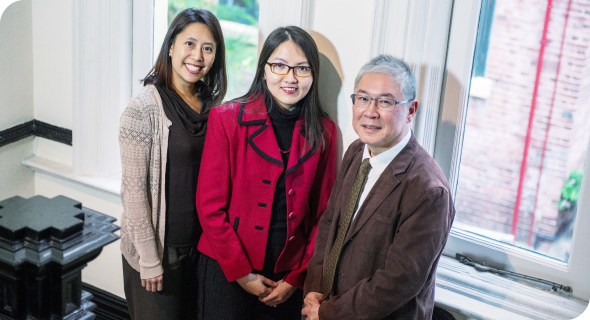
From left: Dr Julie Chen Yun, Dr Janice Tsang Wing-hang and
Professor Chan Li-chong, MB Lee Professor in the Humanities and Medicine (Leader)
Li Ka Shing Faculty of Medicine
Inspiration for the team’s award-winning work arose from the realisation that the existing curriculum – like those of most medical schools – focussed very well on medical facts and scientific knowledge but tended to neglect the human side of being a doctor.
With this in mind they developed ‘A Medical Humanities Core Curriculum: Engaging Medical Students through Experiential Learning’ – which encouraged students not to neglect their interests outside of the medical field so as to remain rounded individuals, and through role play to learn how to connect and empathise with patients.
Students commented that the course was a refreshing change from the more stressful side of being a medical student, such as being bombarded daily with medical facts and learning to deal with suffering and death.
“I enjoyed the programme immensely,” said current MBBS student Amanda Hwang Chin, “and I think it will definitely make me a more humanistic doctor and a better doctor in the future. I am truly grateful to the Medical Humanities team for their endeavour in introducing such an unconventional yet desperately needed element to a comprehensive medical education.”



